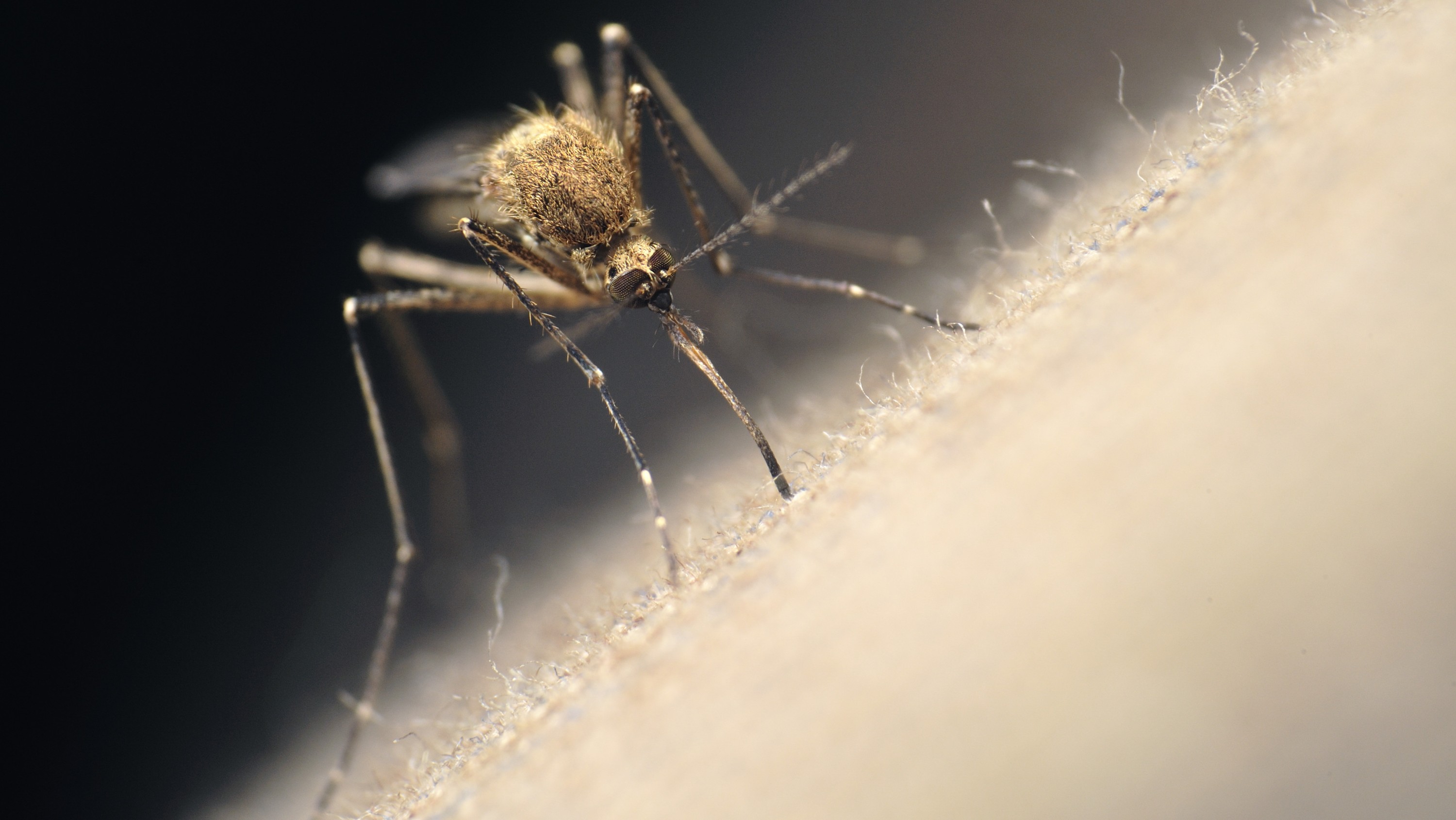It’s nearly impossible to head outdoors in Alberta during the summer months without coming across mosquitoes — and experiencing the itch-inducing bites they bestow. But as irritating as those bites may be, mosquitoes are a necessary part of the ecosystem, with more than 30 species in the Edmonton area alone, according to a University of Alberta biologist.
“Both the larvae and the adults are food sources for other insects such as dragonflies, amphibians, birds and even bats,” says Maya Evenden, professor in the Department of Biological Sciences.
As for what mosquitoes eat, Evenden explains that only the adult females actually bite. “They need the protein in blood to develop their eggs, whereas the males will feed primarily on nectar.”
Evenden unpacks the science behind what attracts and repels mosquitoes, and what people can do to deter them.
The cues of attraction
Mosquitoes aren’t just relying on one of their senses to find humans — there are three main types of cues that guide them to their next snack: “Mosquitoes will use visual cues, heat cues, and olfactory or scent cues to orient to a host,” explains Evenden.
These cues often work in unison. For example, it’s true that drinking alcohol makes you more attractive to mosquitoes, for multiple reasons.
“Primarily, it’s because drinking results in ethanol being released in the breath and sweat, and that increases the attractiveness of the olfactory cues,” says Evenden. Drinking alcohol can also increase body temperature, so it can also be a heat cue.
View this post on Instagram
And if you’ve ever been frustrated by how mosquitoes always seem to trail you while you’re out enjoying a walk, it’s because of a bodily reaction you have no control over.
“The most well-studied olfactory cues are carbon dioxide and lactic acid, and those have been shown to attract mosquitoes over tens of metres.”
Mosquitoes also feed on nectar in flowers, so they’re particularly receptive to floral scents, which means they may be attracted by perfumes or clothing washed with scented laundry detergent.
Effective repellents
From candles to sprays to patches, the variety of products marketed as mosquito repellents have one thing in common: “All the repellents are attempting to mask those cues,” says Evenden.
Natural repellents are mainly based on essential oils, Evenden explains, and have shown a degree of effectiveness. Citronella, an essential oil derived from lemongrass, is the most well-known oil in these products.
Another simple tip to get some natural protection is to wear light-coloured clothing.
“Mosquitoes that fly during the day can be attracted to dark moving objects,” says Evenden, so you’re more liable to trigger a mosquito’s visual cues if you’re wearing a dark hue. However, these options don’t repel mosquitoes for as long or as effectively as DEET-based repellents.
DEET is a chemical found in the vast majority of human-made insect repellents. “The percentage of DEET can vary, and that will influence both the repellency effect and the length of time the repellent can last,” Evenden notes.
For children, it’s not recommended to use a product with higher than 10 per cent DEET. The average adult will want a product with anywhere from 10 to 35 per cent DEET, Evenden says. There are products with higher percentages, but they’re not suited to those simply looking to keep from being bitten while spending time outdoors. The high-concentration options are intended for areas where mosquitoes may carry potentially deadly diseases, necessitating the higher level of deterrence.
What causes the itchiness?
As Evenden explains, when mosquitoes bite you, there are certain antigens in their saliva. “They inject it because they want to keep the blood flowing; it has an anticoagulant effect.”
It’s these antigens that trigger the slight inflammation and maddening itch — and they’re also the reason behind more severe reactions to mosquito bites. While most people will just experience minor irritation at the site of the bug bite, those who are allergic to the antigens in mosquito saliva may even experience an anaphylactic response.
The 411 on Edmonton’s mosquito control strategy
Though Edmonton’s mosquito control program discontinued aerial control this year, focusing instead on ground control efforts, Evenden says the measures being taken are effective and aren’t harmful to humans. Instead of using an insecticide, the program uses a biological control agent to help keep the mosquito population under control.
“It’s a bacteria that specifically targets mosquitoes, and they only apply it to very temporary ponds that don’t have a lot of predators present, so it’s not a major disruption to the ecosystem mosquitoes are in.”
Learn more about the bugs in our lives
If you’re curious about all the other critters that crawl or fly around in Edmonton, check out the open online course Bugs 101: Insect-Human Interactions, which offers an introduction to insects and their roles in human society. Evenden developed the course, which has had more than 30,000 learners from over 130 countries register. Bugs 101 also recently received an international award from the Entomological Society of America for science communication.
